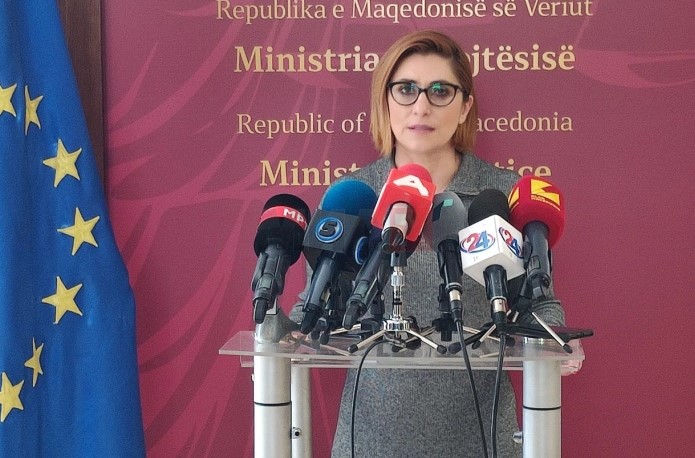Deputy Justice Minister Viktorija Avramovska – Madic apologized to the public after her statement in which she announced the addition of the “Aegean” nation into the Constitution.
The Government is under strong pressure from Bulgaria to include the Bulgarian nation in the Preamble, and Bulgaria will continue to block Macedonia’s EU accession until this is done. To dilute the issue, the Government is offering to include the Croats, Montenegrins and Jews in the Constitution as well. But the Deputy Minister, sent to defend the proposal on television, she named the Aegeans among the nations. This word refers to ethnic Macedonians from the region of Aegean Macedonia – seized by Greece a little over 100 years ago, who have been forced to leave their homes and settle in the current Republic of Macedonia, or across Europe and the world. Aegean Macedonians who remain in within the borders of Greece are forced to use the Greek language and have had their personal names and the names of their towns and villages Helenized over the past decades.
In Macedonian, they are often refered to as “Egejci”, while the Jews are called “Evrei”, and Madic said that she made an innocent mistake. Still, her statement, and the Government’s attempts to divide the Macedonian nation along ideological lines, have caused uproar in the public, in the hours when it was thought that the proposal is genuine. The Government is considering adding the Torbeshi in the Constitution – these are Muslim Macedonians who are considered part of the Macedonian nation, and their addition as a separate nationality would further divide the Macedonians. Macedonians from the Republic of Macedonia are sometimes referred to as “Vardar Macedonians” while those in south-east Bulgaria – as “Pirin Macedonians” – this being the three large portions of the territory of Macedonia that was divided by Greece, Serbia and Bulgaria in 1913.
Aegean Macedonians, many of whom were forced to flee after the Greek Civil War, were initially not welcome in Socialist Macedonia, and were forced to settle in Poland, Czechoslovakia, and even as far as Soviet Uzbekistan. Given the Yugoslav authorities insistence that their plight will not be raised in public – in order not to damage relations with Greece – many of them faced discrimination and arrests after settling in Macedonia. Officials from the now ruling SDSM party would accuse the Aegean Macedonians for their support of Nikola Gruevski’s Government, and his attempts to raise the Aegean issue and to promote the cause of the Macedonians in Greece.




Comments are closed for this post.